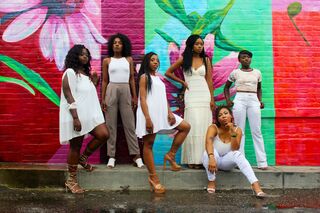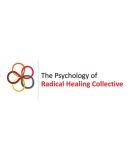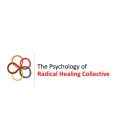Gender
#SayHerName
Radical Healing for Black Women and Gender Expansive Folx
Posted May 16, 2020 Reviewed by Jessica Schrader

By Jioni A. Lewis, Helen A. Neville, Della V. Mosley, Bryana H. French, Nayeli Y. Chavez-Dueñas, Hector Y. Adames, Grace A. Chen
"The way to right wrongs is to turn the light of truth upon them.” —Ida B. Wells
The news of the grand jury decision in the Breonna Taylor case hit us hard. In the midst of the novel coronavirus (COVID-19) global pandemic in which Black Americans have been disproportionately impacted, in March 2020, police officers in Louisville, Kentucky killed Breonna Taylor, a 26-year-old emergency medical technician while she was in the comfort of her home as the result of a botched raid on her apartment. The news of this senseless shooting did not become public until May, and very little information has been made public about the circumstances surrounding her death. Six months later, on September 23rd, we learned that the grand jury decided not to indict the three officers for the shooting death of Breonna Taylor; one of the three officers was charged with “wanton endangerment” for shooting into a nearby apartment during the raid. Thus, the police department has assumed zero responsibility and there has been no justice for Breonna Taylor. We mourn with Breonna Taylor’s family, friends, and community.
Black women and gender-expansive folx1 are often relegated to the margins. Kimberlé Crenshaw’s foundational work on intersectionality reminds us that interlocking systems of racial, gender, and class-based oppression uniquely shape the lives of Black women. Crenshaw, Co-Founder and Executive Director of the African American Policy Forum created the hashtag and digital movement #SayHerName in December 2014 to bring to light the police brutality and anti-Black violence directed towards Black girls and women because these stories are often made invisible in the public discourse. Breonna Taylor’s death is one of these cases.
The invisibility of many Black women’s stories is replicated in the chaos of the current COVID-19 pandemic. Recent discussions of inequities and the impact of COVID-19 have focused on racial or gender disparities separately, but they have failed to consider the intersection of the two. Thus, there are some excellent analyses detailing how structural racism and class exploitation create disproportionate COVID-19 disparities among Black people in the United States and the role of structural sexism in producing gender disparities in coronavirus job losses. But, it is difficult to find information on how Black women, in particular, are faring.
Intersectionality Illuminates the Way
Intersectionality provides a lens to illuminate the interlocking systems of oppression that shape the lives of Black women. Black women are dying at higher rates from pregnancy-related complications. Discrimination and structural barriers may also contribute to these alarmingly high maternal mortality rates. COVID-19 has worsened these preventable deaths. Black women often are not believed when they report troubling symptoms, and their pain may be minimized and ignored. The tragic death of Amber Rose Isaac is a case in point. In April 2020, her pleas for medical attention to address her low blood platelet levels were disregarded. She was finally admitted into the hospital, but the delay in medical treatment proved fatal. Amber Rose Isaac. #SayHerName!
There are limited data on how Black women are being impacted at the intersection of racial and gender oppression during COVID-19, and how it is specifically affecting the health of Black mothers and their children. A recently published article in Essence magazine found that 6 out of 10 Black women surveyed indicated COVID-19 had a negative effect on their emotional well-being, and the overwhelming majority were concerned one of their family members would be infected with the deadly virus. Many Black women are assuming the burden of caretaking of family and community during this crisis and shouldering this stress in isolation. There are few public spaces naming our pain and connecting this pain to something larger than our individual lives.
Data are even more limited on the impact of the pandemic on Black trans women and gender-expansive folx who often experience oppression at the intersection of race, gender, and gender expression. For example, Black transgender women are disproportionately targeted by sexual assault and violence. The recent murder of 28-year-old Nina Pop, a Black transgender woman who was stabbed to death in her home in May 2020, is another person whose life ended too soon. Because transgender women have fewer sources of support they can turn to in general, the barriers to community support due to COVID-19 make this loss even more painful. Nina Pop. #SayHerName!
Given the multiple ways in which Black women are impacted by gendered racism, it is important to amplify their stories, resilience, and resistance. Highlighting Black women’s experiences serves to affirm that our lives matter; that we make a difference. Highlighting these narratives also provides Black women an opportunity to define our realities, on our terms. And yes, sharing Black women’s stories is a form of radical healing.
#SayOurNames: Five Ways to Cultivate Radical Healing
Drawing on our Psychology of Radical Healing Framework, we outline healing strategies for Black women during this time. These recommendations are designed to bring about healing while also honoring the deep pain of mourning the deaths of Breonna Taylor, Amber Rose Isaac, Nina Pop, and so many other sisters, daughters, gender-expansive folx, mothers, grandmothers, and elders unnecessarily lost during this crisis. #SayOurNames!
1. Name and Identify Sources of Stress and Trauma
It is important for Black women to be able to recognize and label how intersectional oppression, such as gendered racism, negatively impacts their health and well-being. Black women can experience multiple levels of oppression, from institutional and structural discrimination to interpersonal microaggressions. For example, Jioni Lewis and colleagues found that gendered racial microaggressions have a negative impact on the health and well-being of Black women. Hence, it is important to apply an intersectional lens that allows us to name these systems of oppression that lead to increased stress and trauma for Black women. Stress responses can take many forms, including working nonstop with barely a moment to breathe, irritability, anger, headaches, and questioning the purpose of life or one’s faith. Increasing one’s awareness about the ways stress and trauma are experienced in our bodies is essential to be able to plan and implement ways to cope and heal.
2. Engage in Mind-Body Healing
Many Black women might find that stress and trauma reside in one’s body in ways that warrant engaging in mind-body interventions, such as yoga, meditation, and mindfulness to reconnect with oneself. For example, Black Girl in Om is a meditation company created by and for Black women. Psychologist Candice Hargons has also created a Black Lives Matter meditation to help individuals heal from racial trauma. Engaging in some form of daily spiritual practice, such as prayer, has been found to be beneficial for Black women. Psychologist Shelly P. Harrell has developed the concept of Soulfulness, which is a contemplative practice that moves beyond individual healing and towards communal empowerment strategies, collective healing, and liberation. In addition, Harriet’s Apothecary is a group of Black cis, trans, and queer women healers that provide indigenous and spiritual healing practices for the Black community.
3. Lean on Support Networks
Many Black women have been socialized to proudly don the superwoman cape or endorse the myth of the strong Black woman. The cape serves a purpose: It allows for perseverance in the face of adversity. As Cheryl Woods-Giscombe and colleagues have found, the cape can also undermine Black women’s mental health by not providing space for Black women to acknowledge struggles or seek help when necessary. Thus, in order to get through this time of loss and uncertainty, it is important for Black women to recognize that seeking collective support is an indicator of strength. It is important to nurture connection with sister friends through activities, such as enjoying music on Instagram Live, like the recent Erykah Badu vs. Jill Scott performance, practicing cultural dance with family or friends, or co-creating a healing music playlist. Sister circles are support groups for Black women, which have been found to be very effective in reducing stress and anxiety. Having a space to give and receive support and validation about experiences of oppression can be very empowering.
4. Envision Possibilities for Wellness, Freedom, and Dignity After COVID-19
This is a good time to reflect on and dream about future realities. The Civic Imagination Project offers resources and highlights the stories of people using narratives to build shared understandings of a better world. With friends and family, you could contemplate questions such as:
- What would the world look like if all Black women, including Black trans women and gender-expansive folx, were valued and respected?
- What would be needed for change to happen?
- What Black women have inspired me? These could be women in your family, mentors, foremothers, and ancestors.
5. Stand for Social Justice and Take Action
Black women in the U.S. have a long history of being leaders and taking action in the fight for justice and democracy. It is no surprise that Black women are on the front lines working to ensure that the needs and rights of those hurt most by the pandemic are protected. Taking action promotes community healing and can also foster individual healing. For example, Eleanor Seaton and her colleagues found evidence that supporting Black Lives Matter had health benefits among Black Americans. Standing for justice is part of our cultural heritage. You can continue the legacy by taking action. Della Mosley and colleagues developed a practical model for people seeking a blueprint for resisting anti-Black racism. An example of resistance that would be useful now includes encouraging local, state, and national agencies to collect and disaggregate data by race and gender. These data are essential for documenting how Black women are specifically impacted by the pandemic and helping to identify solutions. Other examples of resistance include protesting and supporting grassroots efforts promoting the human rights of Black women and gender-expansive folx (e.g., donating time, money, or resources).
It is important to increase our critical consciousness about these interlocking systems of oppression that negatively impact Black women; develop increased awareness about these sources of stress and trauma; seek out mind-body interventions and social support for community healing; envision possibilities for wellness, freedom, and dignity; and take action. Collectively, Black women and gender-expansive folx can engage in radical healing to support ourselves and our communities.
References
This article was updated on September 25, 2020 to reflect the grand jury decision in the Breonna Taylor case.
1. In this post, we use women as an expansive term that includes any person who identifies as a woman, irrespective of their sex or their gender expression. Gender-expansive folx refers to people who do not endorse traditional gender norms or labels yet experience gender-based oppression. Gender-expansive is often used interchangeably with “non-binary.”
Note: We were intentional in our choice to cite several sources by Black women in the spirit of uplifting the intellectual production of Black women whose research and scholarship are often erased and made invisible in academia and the public discourse. Check out #CiteBlackWomen for more information about this movement.
Bryant-Davis, T. (2013) Sister Friends: A reflection and analysis of the therapeutic role of sisterhood in African American women's lives, Women & Therapy, 36(1-2), 110-120. doi: 10.1080/02703149.2012.720906
Conner, K. O., Patterson-Price, J., & Faulkner, N. (2020). African dance is my therapy: Perspectives on the unique health benefits of West African dance. Journal of Dance Education. https://doi.org/10.1080/15290824.2019.1678751
Crenshaw, K. W. (1989). Demarginalizing the intersection of race and sex: A Black feminist critique of antidiscrimination doctrine, feminist theory and antiracist politics. University of Chicago Legal Forum, 1, (139-167). Retrieved from http://chicagounbound.uchicago.edu/uclf/
French, B. H., Lewis, J. A., Mosley, D. V., Adames, H. Y., Chavez-Dueñas, N. Y., Chen, G. A., & Neville, H. A. (2020). Toward a psychological framework of radical healing in Communities of Color. The Counseling Psychologist, 48(1), 14-46. https://doi.org/10.1177/0011000019843506.
Lewis, J. A., Mendenhall, R., Harwood, S., & Browne-Huntt, M. (2016). “Ain’t I a Woman?” Exploring gendered racial microaggressions experienced by Black women. The Counseling Psychologist, 44(5), 758–780. doi: 10.1177/0011000016641193
Lewis, J. A., Williams, M. G., Peppers, E., & Gadson, C. A. (2017). Applying intersectionality to explore the relations between gendered racism and health among Black women. Journal of Counseling Psychology, 64(5), 475-486. http://dx.doi.org/10.1037/cou0000231
Mosley, D. V., Hargons, C. N., Meiller, C., Angyal, B., Wheeler, P., Davis, C., & Stevens-Watkins, D. (2020). Critical consciousness of anti-Black racism: A practical model to prevent and resist racial trauma. Journal of Counseling Psychology. Advance online publication. https://doi.org/10.1037/cou0000430
Neal-Barnett, A., Stadulis, R., Murray, M., Payne, M. R., Thomas, A., & Salley, B. B. (2011). Sister circles as a culturally relevant intervention for anxious African American women. Clinical Psychology, 18(3), 266–273. https://doi.org/10.1111/j.1468-2850.2011.01258.x
Newberger, J. (2020) Music in times of upheaval. Psychoanalytic Social Work, 27(1), 31-41. doi: 10.1080/15228878.2019.1656651
Seaton, E.K., Noah, A., Yoo, B., & Vargas, E. (2020). Health implications of Black Lives Matter among Black adults. Journal of Racial and Ethnic Health Disparities. https://doi.org/10.1007/s40615-020-00749-z
Woods-Giscombe, C. L., Allen, A. M., Black, A. R., Steed, T. C., Li, Y. & Lackey, C. (2019). The Giscombe Superwoman Schema Questionnaire: Psychometric properties and associations with mental health and health behaviors in African American Women. Issues in Mental Health Nursing, 40(8), 672-681, doi: 10.1080/01612840.2019.1584654




